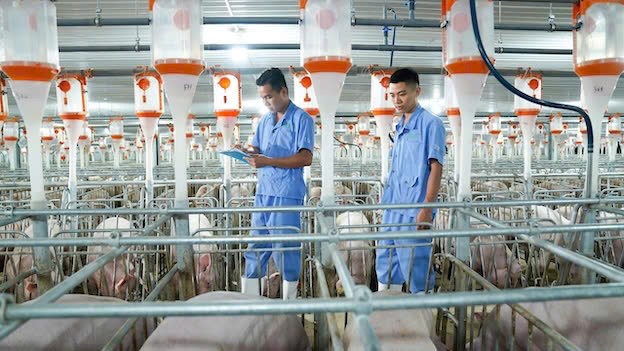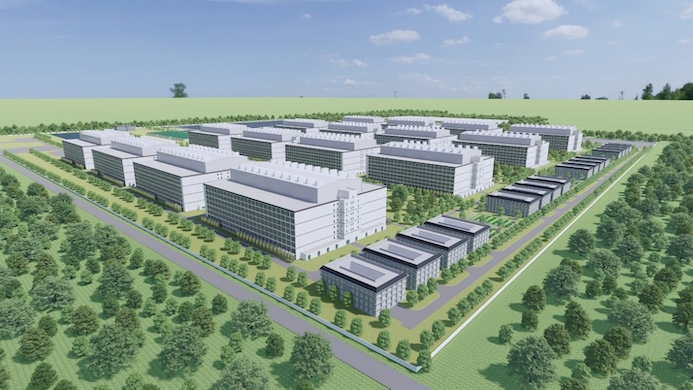New direction for Vietnam's livestock industry
Recently, Deputy Minister of Agriculture and Environment Phung Duc Tien has just signed a document to the Prime Minister proposing to allow the implementation of a pig farming model in high-rise buildings in Vietnam. Accordingly, two enterprises, BAF Vietnam Agricultural Joint Stock Company and Xuan Thien Thanh Hoa Joint Stock Company, have submitted a proposal to implement this model.
Speaking with Lao Dong, Mr. Pham Kim Dang - Deputy Director of the Department of Animal Husbandry and Veterinary Medicine (Ministry of Agriculture and Environment) said that the implementation of the pig farming model in high-rise buildings can help take advantage of the mechanical advantages of making and producing barns in Vietnam, especially in line with the Project "Developing the livestock barn industry and treating livestock waste by 2030" approved by the Prime Minister.

"A few years ago, when there was an African swine fever, China started building high-rise buildings to raise pigs because at that time, scattered household livestock farming was no longer suitable, there needed to be a centralized quarantine area and this method has proven effective. To date, some Vietnamese enterprises have learned from experience and are eager to invest to implement this model. However, this is a new model, so the Department of Animal Husbandry and Veterinary Medicine has advised the Ministry of Agriculture and Environment to submit to the Prime Minister for comments," said Mr. Dang.
In its submission to the Prime Minister, the Ministry of Agriculture and Environment cited that China has deployed more than 2,000 high-rise pig farming models with nearly 4,500 buildings, providing about 2.65 million breeding pigs and more than 30 million pigs each year. These farm chains apply smart technology such as AI, blockchain, IoT, automation and real-time monitoring sensors to analyze data, warn of epidemics and regulate nutrition for each pig.
A highlight of the model is an effective environmental treatment system: wastewater and emissions are treated with 4-layer air filtration technology to help remove more than 95% of odor; livestock waste is converted to serve the production of organic fertilizers. Thanks to that, the model ensures strict biosafety and disease control.
Scale of pig-raising apartments
According to the leader of BAF Company - one of two companies that proposed to build a pig-raising apartment model, the project in Tay Ninh was built in Tan Chau, with a scale of 64,000 breeding pigs, producing about 1.6 million commercial pigs per year with a total estimated investment of more than VND 12,000 billion.

After being licensed by the competent authority, BAF has prepared all resources to implement the project, expected to start construction at the end of 2025 or the beginning of 2026 and put into operation the first farm after 10-12 months of construction. If put into operation on schedule, BAF will be one of the first enterprises to own this unique pig farming model in Vietnam.
The modern model in this farm also integrates technology to help solve environmental problems related to deodorization, water reuse, and circular economy through solutions to make organic fertilizers from waste sources... This helps to minimize negative impacts on the environment, solve problems of odor and wastewater pollution, which are major challenges for traditional livestock.
Previously, in September 2024, BAF signed a strategic agreement with Muyuan Livestock - Food Group, a livestock enterprise with extensive experience in developing a multi-layered livestock farm model integrated with modern technology.











